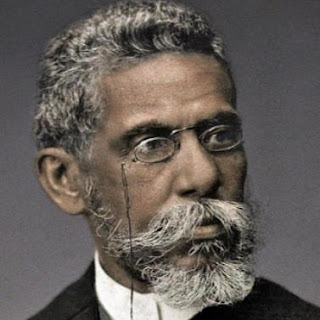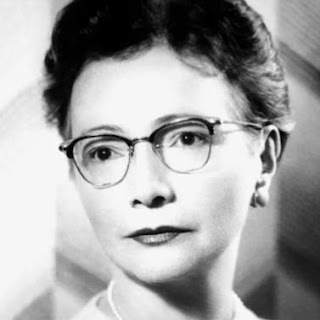Biography.
Joaquim Maria Machado de Assis, often known by his surnames as Machado de Assis, Machado, , was a pioneer Brazilian novelist, poet, playwright and short story writer, widely regarded as the greatest writer of Brazilian literature. Nevertheless, Assis did not achieve widespread popularity outside Brazil during his lifetime. In 1897 he founded and became the first President of the Brazilian Academy of Letters. He was multilingual, having taught himself French, English, German and Greek in later life.
Vicious Circle
The firefly danced in the air impatiently:
"Oh how I wish that I could be that yellow,
That burns in the eternal blue, a candle far!"
And yet the star gazed on the moon with jealousy:
"If only I could copy such transparency,
Which, from the Grecian column to the Gothic sill,
Has contemplated lovers' faces sighingly!"
And yet the moon gazed on the sun with bitter will:
"Oh misery! If l could be that giant ball,
Immortal clarity, the sum of all that's light!"
The sun, though, leans his brilliant chaplet o´er the wall:
I´m burdened by this numen's aureole bright…
Pm wearied by this blue, unbounded parasol…
Why could I not be born a firefly at night?"
To Carolina
My sweet, here at the foot o fyour last bed
In which you're resting now from your long life,
I've come and always will, poor dearest wife,
To bring you the companion's heart you wed.
It pulses from affection tried and true
And which, despite all human drudgery,
Had made our life's existence ecstasy
And brought our home a world for me and you.
I bring you flowers,—remnants plucked now faded
From earth that saw us jointly walk this way
And now has left us dead and separated.
If l, within my wounded eyes today
Still carry thoughts of life I´d formulated,
Those thoughts once lived, but now they've gone away.
The Devil´s Wedding
In ímitation of the German
Satan had the thought one day
To marry. How original!
He wished no ugly woman, nay,
A faithful soul, and virginal.
Take the counsel of a friend,
No marriage, Beelzebub, pursue;
Because a woman, as she's human
Is finer more genteel than you.
But he resolved upon this project,
Desired to see it come to pass,
And so he sought to win the object
That met his tastes, a bonny lass.
Take the counsel of a friend,
No marriage, Beelzebub, pursue;
Because a woman, as she's human
Is finer more genteel than you.
He cut his nails, he cut his tail,
He cut his horns, and then somehow
Our devil turned into a male
A hero of all heroes now.
Take the counsel of a friend,
No marriage, Beelzebub, pursue;
Because a woman, as she's human
Is finer more genteel than you.
To marry was his sole desire;
He traveled over sea and land,
He found a beauty to inspire
And made arrangements for her hand.
Take the counsel of a friend,
No marriage, Beelzebub, pursue;
Because a woman, as she's human
Is finer more genteel than you.
He was willing, she agreed,
They joined each other's hands asxone,
In harmony they did succeed
To tie the knot; the deed was done.
Take the counsel of a friend,
No marriage, Beelzebub, pursue;
Because a woman, as she's human
Is finer more genteel than you.
A year went by, and Satan found,
No parts grew back, nothing at all,
No nails, no tail that curved around ...
Except his horns, yes they grew tall.
Take the counsel of a friend,
No marriage, Beelzebub, pursue;
Because a woman, as she's human
Is finer more genteel than you.
Translated by Frederic G. William









